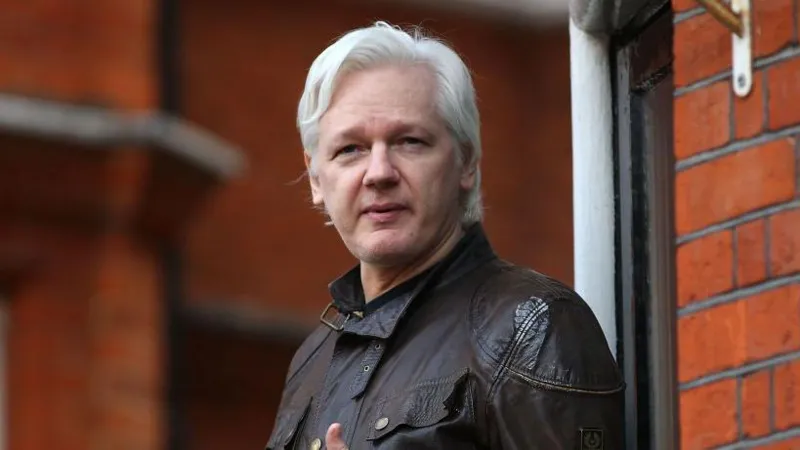WikiLeaks founder Julian Assange is set to plead guilty to violating US espionage law, ending his imprisonment in Britain and allowing him to return home to Australia. Assange, 52, has agreed to plead guilty to one criminal count of conspiring to obtain and distribute sensitive U.S. information.
The charges against Assange caused anger among global supporters, who believe he should not face the same punishment as governmental officials who steal or leak material. Many supporters of press freedom have stated that punishing Assange puts at risk free speech.
Background and Initial Arrest
Assange was originally jailed in Britain in 2010 on a European arrest warrant when Swedish police tried to question him about sex-crime charges that were later dropped. He escaped to Ecuador’s embassy, where he lived for seven years, avoiding extradition to Sweden.
In 2019, he was taken from the embassy and arrested for failing to appear on bail. He has been in London’s Belmarsh top security jail for almost five years, fighting extradition to the United States.
Charges and Publications
Assange has fought extradition for years to avoid facing charges for releasing classified information about U.S. military activity in Iraq and Afghanistan. He gained worldwide attention in 2010 after revealing the largest security breach of its kind in U.S. military history. WikiLeaks released over 90,000 documents related to Afghanistan and later published more than 400,000 documents from the war in Iraq.
Former U.S. Army intelligence analyst Chelsea Manning served years in prison for leaking the documents to WikiLeaks, and former President Barack Obama commuted her sentence after she served seven of 35 years.
Controversy and Criticism
Assange’s case proved difficult to prosecute politically and geographically, as he argued that he was a journalist and that WikiLeaks published secret documents as major American newspapers routinely do.
Critics argued that Assange was not a journalist because he didn’t write stories or interview anyone or provide sufficient explanatory context to explain the raw classified documents and data that he released. The US has claimed that the WikiLeaks files, which revealed details on the Iraq and Afghanistan wars, risk lives.
Plea Deal Details
Assange will plead guilty to one count of conspiring to obtain and disclose information related to the national defense in a US federal court in Saipan, the Northern Mariana Islands. Under the agreement, Justice Department prosecutors will seek a 62-month sentence, equivalent to the time Assange served in a London high-security prison while he fought extradition to the US. The plea deal would credit that time served, allowing Assange to return to Australia.
Conclusion of Legal Battle
Assange’s case included material about American military activity in Iraq and Afghanistan, as well as confidential cables shared among diplomats. In 2019, a federal grand jury indicted Assange on 18 counts related to WikiLeaks’ dissemination of a broad array of national security documents. If convicted, Assange could have faced a maximum of 170 years in a federal prison.
The agreement was not unexpected, as Prime Minister Anthony Albanese of Australia suggested that U.S. prosecutors needed to conclude the case earlier this year. Top officials at the Justice Department accepted an agreement with no additional prison time because Assange had already served longer than most people charged with a similar offense — in this case, the sentence is more than five years in prison in Britain.
After weeks of negotiations, Assange is pleading guilty to one of the charges in the indictment — conspiracy to disseminate national defense information — which carries a sentence of up to 10 years in prison.
Return to Australia
Assange will not be jailed in the United States and will be given credit for his time in prison in the United Kingdom. Assange has been refusing arrest to the United States for almost a decade, and in March, the High Court in London granted him permission for a full hearing on his appeal.
A hearing about Assange’s free speech rights was scheduled for July 9-10. The plea agreement is set to bring an end to a long-running judicial battle and a transatlantic tug-of-war between national security and press freedom.
Lucky Khan specializes in event and incident coverage, bringing his keen insights and comprehensive reporting to the forefront. With a knack for capturing the essence of major happenings, Lucky keeps his readers informed and engaged with the latest updates.

